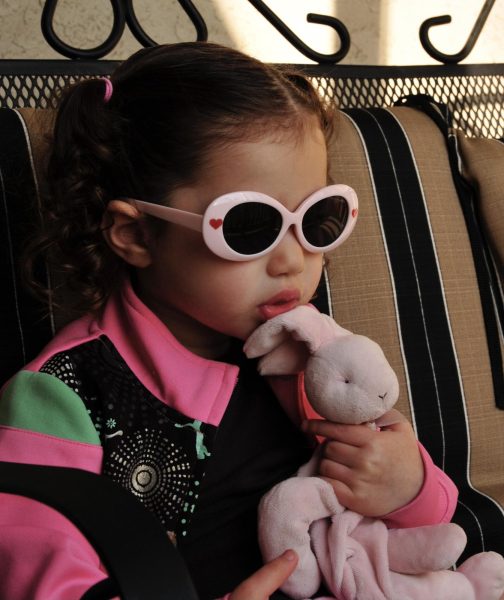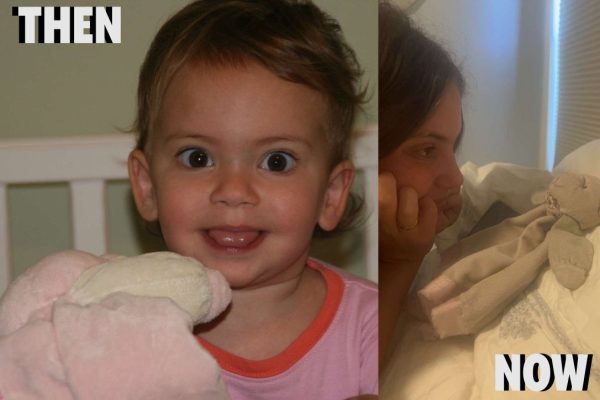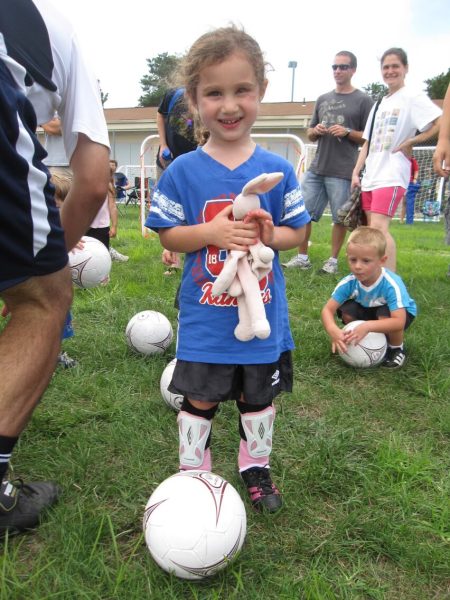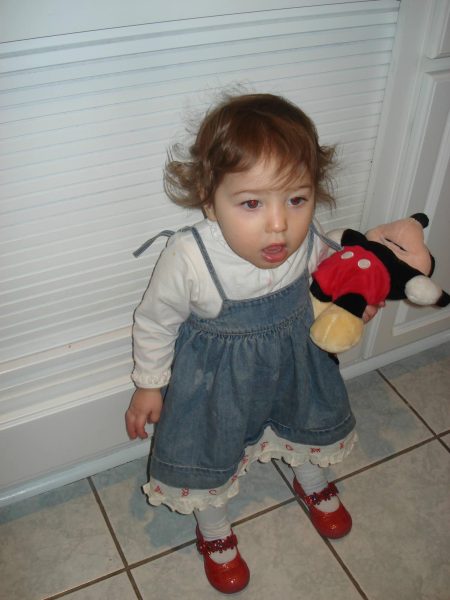Knowing you are coming home to a warm bed can be mentally comforting after a long and stressful day. Oftentimes, to shift your mindset into one that is relaxed and ready for bed, having a stuffed furry friend beside you is all it takes.
Growing up, I always slept holding my bunny and blanket; I could not go a single night without them. To this day, I continue to sleep side by side with my childhood stuffed animals as they secure me with the feeling of comfort and support I need before drifting off to sleep, and it seems I am not the only one with this routine.
According to a survey conducted by Build-A-Bear Workshop, about 40% of adults admit to still sleeping with a stuffed animal or blanket from their childhood, (Sleep Enlightened).

Doctors refer to stuffed animals and blankets as “transitional objects.” They are something young children curl up with to feel safe and secure, especially when they are away from a parent or caregiver. Stuffed animals also support kids during their transition into becoming independent and separated from their parents.
Once a connection to the object is made, kids learn to turn to it to help them cope with their anxieties. “Over time, the child learns that they’re able to cuddle with the stuffed animal and feel a sense of comfort, which aids in sleep,” says Krystal Kavita Jagoo, a Toronto-based mental health professional and registered social worker. Eventually, the child will start associating the stuffed animal with bedtime, (Sleep Enlightened).
High school junior Gabrielle Rothstein (Redwood, Calif.) sleeps with a little pink bear blanket she calls Nini (Nai Nai). When she was a kid, she was consistently told, “It’s time to go night night” (hence why her stuffed animal is named Nai Nai). Gradually, Rothstein began forming the mental connection that bedtime meant time to snuggle up with her stuffed animal.

One main reason many are profoundly attached to their stuffed animals is due to habits formed during childhood. Even as a teen or an adult, having a stuffed animal there for you is often comforting because it gives you a sense of youthfulness and can connect you to your childhood.
Ruby Sokol, a sophomore at HBHA explained, “It makes you feel little (in age) and comforted…every night when you get into bed, you know your stuffed animal will be there with you.” The extra layer of comfort felt in having a routine before bed can be beneficial for one’s mental health.
Rothstein said, “I feel like I’m very connected to [her stuffed animal] because she’s always there for me and will never judge me. It’s not like she’s gonna say anything I’m doing is weird, she’s gonna be there for me, and I know she can’t talk back to me.”
Sokol agreed when she said, “Yes, you get in fights with your parents, but you don’t get in fights with your stuffed animal.”
It is comparable to having a supportive friend who is constantly there for you and always on your side. “After a long day, I’m getting in bed and I’m hanging out with my Nini,” Rothstein explained.
Personally, just the thought of relaxing in my bed with my stuffed animal can reset the anxieties building up within. Having that time to look forward to throughout the day helps with stress, knowing that no matter the amount of homework or extracurricular activities I have, at the end of the day I will be cuddled up in bed with my stuffed animals.

Stuffed animals can also provide a sense of protection throughout the night regardless of the fact they are powerless.
HBHA sophomore, Naftali Tilove, explained anytime he watches a scary movie, he spends the night holding his stuffed bear passed down from his great-grandfather. He expressed that the toy contains many memories and is “sentimental” to him because of who he got it from, “I know who else had used it and how much it means to them.”
One may associate certain qualities with their stuffed animal(s) depending on who they received it from or whether it contains generational aura. “It just gives me a sense of security, like you’re holding something and you feel more comfortable because you don’t feel like you’re fully alone,” Tilove said. Sokol added, “It holds the sense that something is there with you, guarding you at night.”
Having stuffed animals can often be socially associated with a childish mindset. When beginning to mature, it might begin to feel odd to sleep with a toy associated with children.
When Sokol considered this, she said, “It seems so embarrassing,” but when asked if she would be able to give up her stuffed animal she responded, “100% no…It’s an emotional attachment, I just can’t give it up.”

Rothstein had a similar reaction to the question when she said, “I’ve had it since I was such a little kid…It’s not going anywhere.” Tilove agreed when saying he could not let the stuffed animal go due to the surplus of family history he would be losing with it.
No matter the reason, having a stuffed animal you are able to trust whenever in need of comfort or support is important to the mental health of many individuals. If you are ever searching for a little stress reliever before bed, pulling out your stuffed animal might be just what you need to drift off into slumber.















